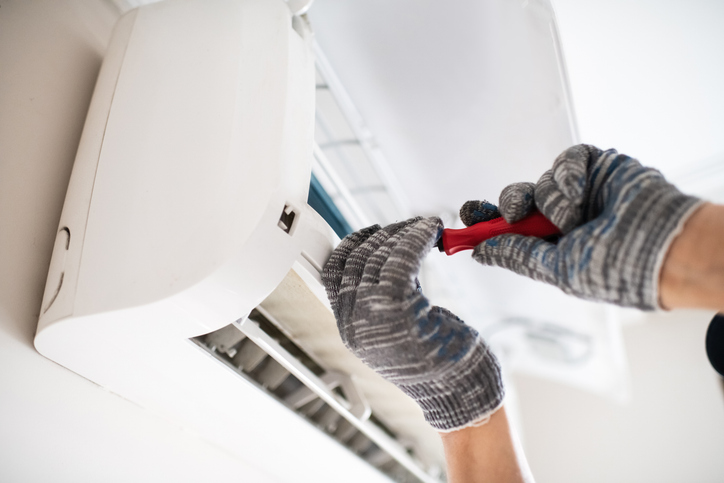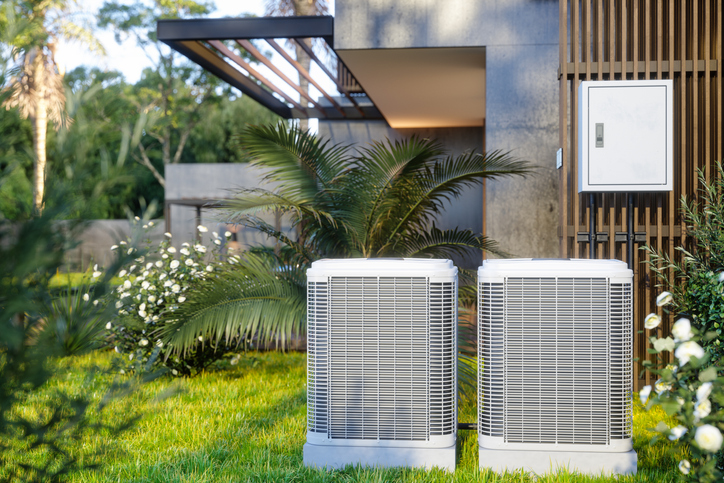Introduction
A fresh, cool blast of air is exactly what you expect from your AC system. But when that air carries an unpleasant odor, it can quickly become a problem you can’t ignore. Whether the smell is musty, sour, or burning, it often signals something wrong inside your air conditioner. Understanding what causes that smell—and how to respond—is the first step to getting your home’s air back to normal. So, if you’re asking, “Why does my AC unit smell?”, you’re not alone. Below are the most common causes behind these odors, what each smell typically means, and how you can deal with them effectively.
Uncover the Causes Behind That AC Odor Fast
1. Musty or Moldy Smell Could Mean Moisture Problems
One of the most frequent complaints homeowners have is, “Why does my house AC smell musty?” This odor usually comes from excess moisture trapped inside the system, especially near the evaporator coil or drain pan. When water doesn’t drain properly, it creates a breeding ground for mold and mildew. These organisms release spores that not only smell unpleasant but also impact indoor air quality. Cleaning the drain lines and coils regularly can reduce this issue before it spreads further. If the musty smell continues, a technician may need to check for hidden mold growth inside the ductwork.
2. Rotten Odors May Be Caused by Dead Rodents or Pests
If you’re wondering, “Why is my AC smelling bad?” a strong rotting odor could mean a small animal has entered the system or ductwork. Rodents or birds often crawl in for shelter and become trapped. When they die inside the unit, their decomposing bodies release foul, lingering smells. Beyond being unpleasant, this can pose a health concern. The solution involves removing the animal, cleaning the affected area, and checking for any openings where pests may get in. Adding mesh screens to vents can help stop future intrusions and keep your system odor-free.
3. A Burning Smell Can Signal Electrical or Mechanical Trouble
When your air conditioner smells smoky, like burning plastic or rubber, it could be a sign of overheated parts. This often means a motor, wire insulation, or internal component is getting too hot due to friction or electrical issues. If you detect this odor, turn off the system right away to avoid serious damage or safety risks. A qualified technician should inspect the wiring, capacitors, and motors to find the cause. Sometimes, a failing compressor may also create a smoky smell just before it stops working completely.
4. Sour or Vinegar-Like Smells Often Come From Clogged Filters
A sharp, sour odor—like vinegar—often leaves homeowners asking, “Why does AC smell bad?” This type of smell typically comes from dirty filters, trapped moisture, or bacteria forming on damp surfaces inside the unit. When filters aren’t replaced regularly, they collect debris and humidity, creating ideal conditions for microbial growth. This problem is more common in systems running constantly in humid environments without routine upkeep. Replacing filters and cleaning internal surfaces can usually fix the issue. It’s also important to check if your AC is dehumidifying effectively to prevent future moisture buildup.
5. Chemical or Exhaust-Like Smells Could Indicate a Refrigerant Leak
Although refrigerant is odorless in its pure form, additives used in some systems can give off a sharp, chemical scent when there’s a leak. If your air conditioner unit smells like exhaust fumes, sweet chemicals, or even acetone (like nail polish remover), you may have a refrigerant issue. Leaks reduce your system’s cooling capacity and could affect indoor air quality. This is not a repair you should attempt on your own. Call a licensed HVAC professional to locate the leak, fix the lines, and recharge the system safely.
6. Cigarette Smell May Linger in Filters and Coils
If someone has smoked inside the home or near the intake vents, the smell of cigarettes can cling to your AC system. Nicotine and tar residue build up on filters, coils, and ductwork, then recirculate whenever the system runs. Even if smoking has stopped, past exposure can leave a stubborn odor that lingers. Replacing filters, cleaning coils, and deodorizing ducts can gradually reduce the smell. For lasting results, hiring an experienced AC repair company may be necessary to fully clean and restore your system.
7. Dirty Sock Syndrome Is a Real Problem in Older Units
Yes, it’s a real term in HVAC: “Dirty sock syndrome” describes a foul, gym-sock-like smell coming from your vents. It’s typically caused by microbial growth on the evaporator coil due to trapped moisture and lack of airflow. This often affects older systems or those with low-grade filters. Cleaning the coil and using antibacterial treatments can reduce the smell. Upgrading to a high-efficiency air filter also helps prevent it from returning.
Strange odors coming from your air conditioner are more than just unpleasant—they often indicate a deeper issue. An unusual smell in the air conditioner unit could result from moisture problems, pest activity, or electrical faults. Each type of odor reveals something different about your system’s condition and should never be ignored. Letting these signs go unchecked can lead to expensive repairs, unhealthy air, or even total system failure. Acting quickly and calling a professional at the first sign of an AC unit smell can help restore clean airflow and avoid long-term damage.
Conclusion
Noticing an unusual AC unit smell at home? RMR Air Conditioning can help. Call our experts at (813) 778-3993 now for expert inspection and fast solutions to restore fresh, clean indoor air.
📌Your Local Comfort Experts—RMR Air Conditioning Has You Covered With Fast, Reliable Heating & AC!






